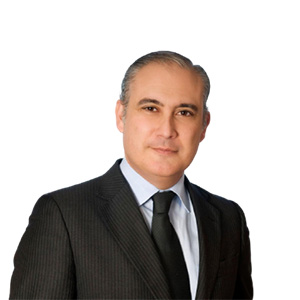In 2022 Portugal climbed to eighth place in the ranking of ‘top ten’ of European economies that most attract foreign direct investment projects, following a couple of decades in which investing in Portugal has been a common topic in different worldwide forums.
During that period Portugal managed to attract to its territory projects of the greatest importance, such as the Volkswagen’s vehicle-production unit in Portugal, a joint venture established in 1991 initially between Volkswagen and Ford, which constitutes the largest foreign investment in the country, contributing to more than 1.5% of its GDP (pre-pandemic data) and creating a high number of direct and indirect jobs in a region in the south outskirts of Lisbon.
This project assumed, at the time it was implemented, an importance in the social sphere, as it allowed the rebirth of industrial activity in the region.
After more than 30 years of the launch of this project, Portugal has been able to present itself as a destination for foreign investment in the most different sectors of activity.
The completion a couple of decades ago of the Alqueva construction, a dam that gave rise to the largest artificial water reservoir in Western Europe and to an extensive irrigation project, allowed the realisation of numerous agricultural investment projects in the Alentejo region. All these investment projects in agriculture are associated with an important export component, essentially focused on the production of olives and olive oil, the production of almonds and other nuts, wines, and as a result of innovative legislation approved in recent years, also in the production of cannabis for medical purposes.
‘Portugal has been able to present itself as a destination for foreign investment in the most different sectors of activity.’
In the real estate market, Portugal has been promoted, at an international level, as a country that presents good investment opportunities, both for developers and smaller investors who can find projects in the most different segments – main residence, secondary/vacation residence and commercial properties.
Policies to attract high-income individuals, implemented, among others, through the non-habitual resident status that confers benefits in the taxation of income obtained abroad and, in certain cases, on income obtained in Portugal, and the possibility that it applies to the so-called digital nomads, has attracted, and still is attracting, a large number of foreign residents to the country, which has allowed some dynamism in the housing market, both in terms of acquisition and rental, mainly in large cities and in the main tourist destinations.
This dynamism is naturally reflected in the construction and real estate activity, which have achieved very positive results in recent years.
We should also highlight the long-term investments made by Portugal for the production of energy from renewable sources, which places the country at the top of the world in the consumption of electricity from renewable sources – the electricity nowadays consumed is mostly produced from renewable sources. It should be noted that last year, in compliance with the commitments it had made, the country stopped producing electricity from coal.
As a curiosity, Portugal has, per year, several consecutive days of electricity supply exclusively from renewable sources. Investment in this type of energy continues its path in Portugal, with new and innovative projects, for example, in wave energy, in offshore wind energy or in photovoltaic plants on water plans/dams.
The self-supply of energy from renewable sources is also being strongly encouraged through fiscal packages associated to this option.
In the times we are living in, the importance of energy supply assumes special relevance and Portugal can, in this chapter, play an additional role considering the capacities of its deep water port located in Sines, namely as a platform for the supply of LNG to Europe or as a strategic site for the production of green hydrogen. Sines has also been pointed out as a relevant port in the international traffic of goods, between Europe, America and Africa, not forgetting its potential as a gateway to Europe for products of Asian origin. For this, it is also essential to modernise the national network of railways, a project that has come to assume greater centrality in political options. In the context of transport policies, the increasing role of electric mobility cannot be forgotten – electric cars and other electric transport means (especially in cities) play an increasingly important role in urban mobility.
‘The affability of Portuguese citizens, their way of life and the openness that the country has to foreigners and to everything that comes from abroad, are not strange factors in attracting new investments and projects.’
Portugal has also been, in recent years, a stage and destination for investments in the area of technology. The most popular image of this path is the realisation in Lisbon, since 2016, of the Web Summit. Supporting the organisation of this event in the country reflects, above all, the country’s predisposition to grow in the technological area by means of national and foreign investment.
More recently a ‘Unicorn Factory’ – announced as ‘a platform of programs and hubs, inspired by international best practices, which supports start-ups and scale-ups in creating sound products and business models, developing efficient processes, and achieving sustained accelerated growth’ – has been created in Lisbon. Also announced in 2022 was a €1bn tech hub investment for the north of Portugal by a Brazilian entity, to build an ecosystem similar to ‘Silicon Valley’.
The affability of Portuguese citizens, their way of life and the openness that the country has to foreigners and to everything that comes from abroad, are not strange factors in attracting new investments and projects, in the technological area and in other areas.
These factors have most probably also influenced several service providers to install their supporting services centres in Portugal for different European countries – for example, Portugal has been used as a nearshoring platform for several contact centres.
However, Portugal has not abandoned its traditional industries and sectors such as cork, textiles, footwear or metalworking have been reinvented developing innovative products ‘made in Portugal’ that have been assuming an increasing relevance in the international markets.
All this has been achieved in an environment of social peace and legislative stability. The country’s legislation is shaped by the models in force in the European Union.
In conclusion, 30 years after the flag investment by VW and Ford, Portugal continues to be extremely attractive as a destination for foreign investment. However, despite the numerous similarities with other European Union countries, there are several specificities that recommend the legal support of local teams in the evaluation and structuring of investment projects.
At Raposo Bernardo we are used to providing our advisory services to foreign clients, both directly and in liaison with the lawyers who accompany them in their country of origin, and with whom we establish partnerships that help to successfully implement the clients’ investment projects in our country.
For more information, please contact:

Joana Andrade Correia (Partner)

Manuel Esteves de Albuquerque (Managing Associate)
Raposo Bernardo
AV. FONTES PEREIRA DE MELO
EDIFÍCIO AVIZ, N.35, 18TH FLOOR
1050-118 LISBON
Portugal
T: +351 213 121 330
E: jacorreia@raposobernardo.com















